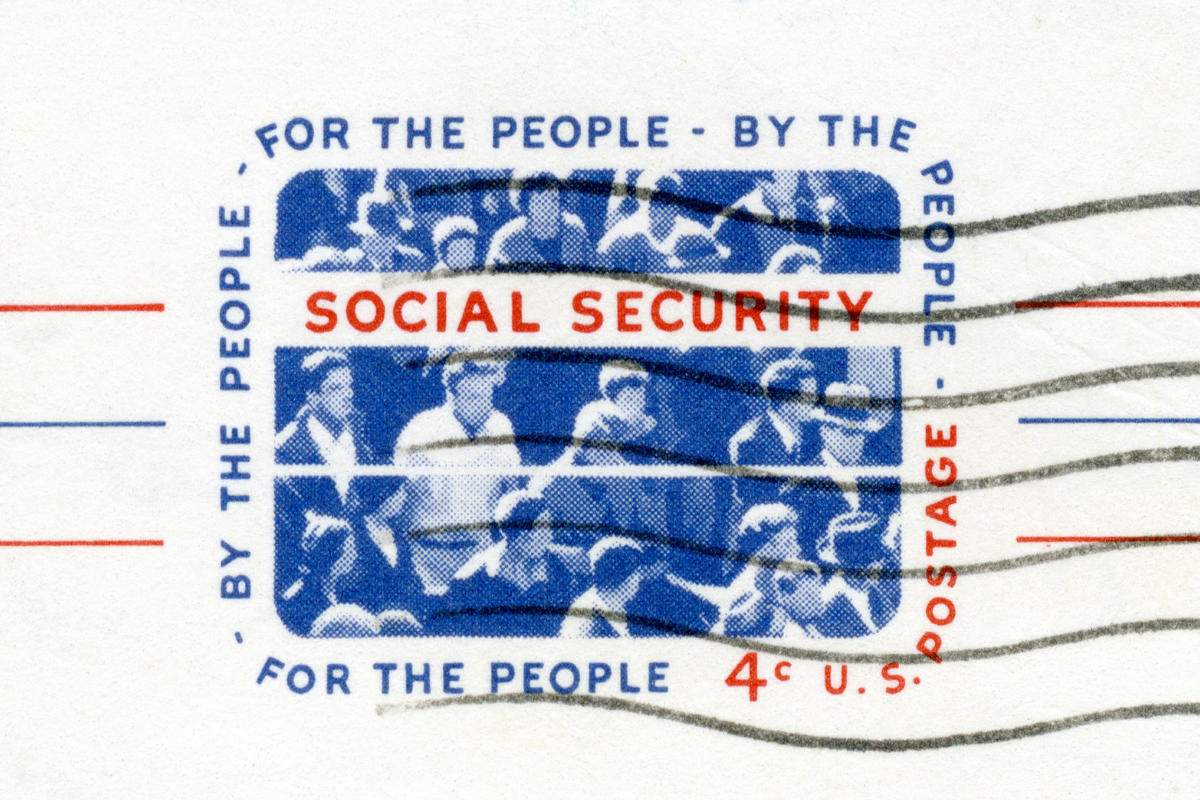Post Disclaimer: This blog reflects the author's personal experience with end-of-life matters and is provided in good faith for informational purposes only. While we aim to provide clear guidance on hard-to-find topics, this content is not legal advice, and your use is at your own risk. Estate planning and end-of-life laws vary by location, so please consult your state's laws and seek guidance from a licensed attorney for your specific situation. We make no warranty about the accuracy or completeness of this information, which does not replace professional legal counsel. For more information, please see our full disclaimer.
Losing a loved one is an emotional and stressful time.
Along with grieving, families often face financial challenges, such as paying for funeral expenses.
This raises a common question: "Does Social Security cover funeral expenses?"
No, Social Security does not cover funeral expenses directly. It offers only a one-time $255 death benefit to eligible spouses or dependent children. This amount falls far short of typical funeral costs, which average $7,000-$12,000. Families should explore veteran's benefits, state programs, and nonprofit assistance for additional support.
Many are unsure if Social Security benefits extend to burial costs.
Below, we’ll clarify how Social Security can help and offer additional options for managing funeral expenses.

Understanding Social Security Benefits and Funeral Expenses
Social Security provides essential benefits to eligible individuals and their families, but it does not directly pay for funeral costs.
While some support exists, it's limited, and many families find it doesn’t cover the full cost of a funeral.
Does Social Security Directly Pay for Funerals?
The short answer is no, Social Security does not directly pay funeral expenses.
Funeral homes and service providers must be compensated by families or other funding sources.
However, Social Security offers limited assistance in the form of a one-time death benefit payment, which can be used toward these expenses.
The Social Security Death Benefit
Social Security provides a one-time death benefit of $255 to help the surviving spouse or minor children.
While this amount won’t cover a full funeral, it can be a small contribution toward the overall cost.
To qualify for this benefit:
- The deceased must have worked long enough to qualify for Social Security benefits.
- The lump sum is paid to a surviving spouse who lived with the deceased or was eligible for benefits on their record.
- If no spouse exists, the payment can go to any children eligible for benefits on the deceased's record.
For details on eligibility and application steps, visit the Social Security Administration's official PDF guide.

Other Financial Support Options for Covering Funeral Costs
If Social Security benefits aren’t sufficient to cover burial expenses, families can explore other assistance programs to ease the financial burden.
Below are common sources of help:
State and Local Assistance Programs
Many states and municipalities offer funeral assistance programs for low-income families.
These programs can vary significantly by location and may provide grants or subsidies to offset funeral costs.
Families should contact their local Department of Human Services or public assistance office to learn more.
Some states allow individuals to allocate funds for funerals through specific burial allowances.
For example, the Supplemental Security Income (SSI) program lets recipients set aside money for burial costs without it counting as a resource.
Learn more on the SSI Spotlight on Burial Funds page.
Veterans Benefits for Funeral Costs
Families of veterans may qualify for burial benefits through the Department of Veterans Affairs.
These benefits can include funeral allowances, burial in a national cemetery, and headstones or markers at no cost.
Eligibility depends on the veteran’s service history and other factors.
Explore this option if your loved one served in the military.
Charities and Non-Profits Offering Funeral Assistance
Nonprofit organizations and charities often step in to help families struggling to afford funeral expenses.
These organizations might provide direct grants, discounted services, or counseling to help navigate the financial challenges.
Faith-based groups and community foundations are also great resources.

Managing Funeral Costs on a Budget
Funeral services can be costly, but families can make meaningful arrangements without overspending.
Reducing funeral costs requires thoughtful planning and a willingness to explore cost-effective options.
Affordable Funeral Planning Strategies
Making affordable choices doesn’t mean sacrificing quality or dignity.
Here are some cost-saving options:
- Choose cremation over burial: Cremation is often less expensive than traditional burials.
- Compare quotes: Shop around for funeral services and compare prices to find the best value.
- Limit extras: Avoid purchasing unnecessary upgrades or additional services that don’t fit your budget.
For more tips on managing funeral costs, check resources like RetireGuide's guide on funeral expenses.
Preplanning Funerals to Reduce Financial Burden
Preplanning allows individuals to make decisions about funeral arrangements and pay for services in advance.
This can relieve loved ones from financial stress and ensure the wishes of the deceased are honored.
Many funeral homes offer prepaid service plans tailored to align with future costs.

Wrap-up: Does Social Security Cover Funeral Expenses?
While Social Security doesn’t directly cover funeral expenses, it offers limited support through the one-time death benefit of $255.
To bridge the gap, families often need to seek assistance from state programs, veteran's benefits, or nonprofit organizations.
Planning funeral services on a budget and considering prepayment can also ease the financial strain during an emotionally challenging time.
By understanding these options and resources, families can find guidance and relief when faced with funeral costs.
For more financial advice and related topics, visit trusted platforms that support end-of-life planning.

FAQs: Does Social Security Cover Funeral Expenses?
1. How quickly can I receive the $255 Social Security death benefit after filing a claim?
After submitting your application, the Social Security Administration typically processes death benefit claims within 30-60 days.
However, processing times can vary based on workload and the completeness of your application.
To avoid delays, ensure all required documentation is submitted with your initial claim.
The payment will be made either by direct deposit or a paper check, depending on your preference and the payment method the deceased had established with Social Security.
2. Can I apply for the Social Security death benefit if the deceased passed away several years ago?
You generally have up to two years from the date of death to apply for the Social Security lump-sum death benefit.
If you're just learning about this benefit and the death occurred within the past two years, you can still submit an application.
However, claims filed after the two-year mark are typically denied unless there are exceptional circumstances that prevented an earlier application.
3. If the deceased worked but never collected Social Security benefits, are survivors still eligible for the death benefit?
Yes, survivors may still be eligible for the $255 death benefit even if the deceased never collected Social Security retirement or disability benefits during their lifetime.
The key requirement is that the deceased must have accumulated enough work credits under Social Security through their employment history.
Generally, this means having worked and paid Social Security taxes for at least ten years, though younger workers may qualify with fewer credits.
4. Does Social Security provide any ongoing benefits that could help with expenses after a funeral?
While not specific to funeral costs, Social Security offers survivor benefits that can provide ongoing financial support after a loved one's death.
Eligible survivors—including spouses over 60 (or 50 if disabled), spouses caring for the deceased's children under 16, and dependent children under 18—may receive monthly payments based on the deceased's earnings record.
These benefits can help manage household expenses after funeral costs have been addressed and provide longer-term financial stability.
5. Can funeral homes apply for the Social Security death benefit on behalf of the family?
No, funeral homes cannot directly apply for or receive the $255 death benefit on behalf of families.
Unlike some veterans' benefits, the Social Security death benefit must be applied for by an eligible surviving spouse or dependent child.
However, many funeral directors will notify Social Security of the death as a courtesy and may provide information about how to apply for the benefit.
The actual application and payment process must be handled directly between the survivor and the Social Security Administration.




